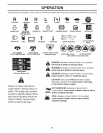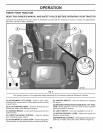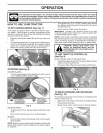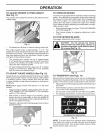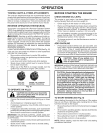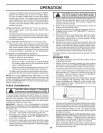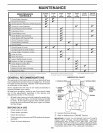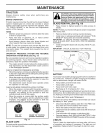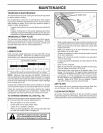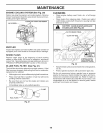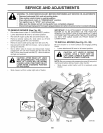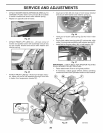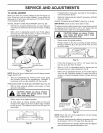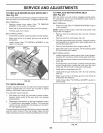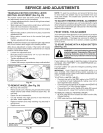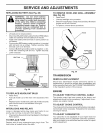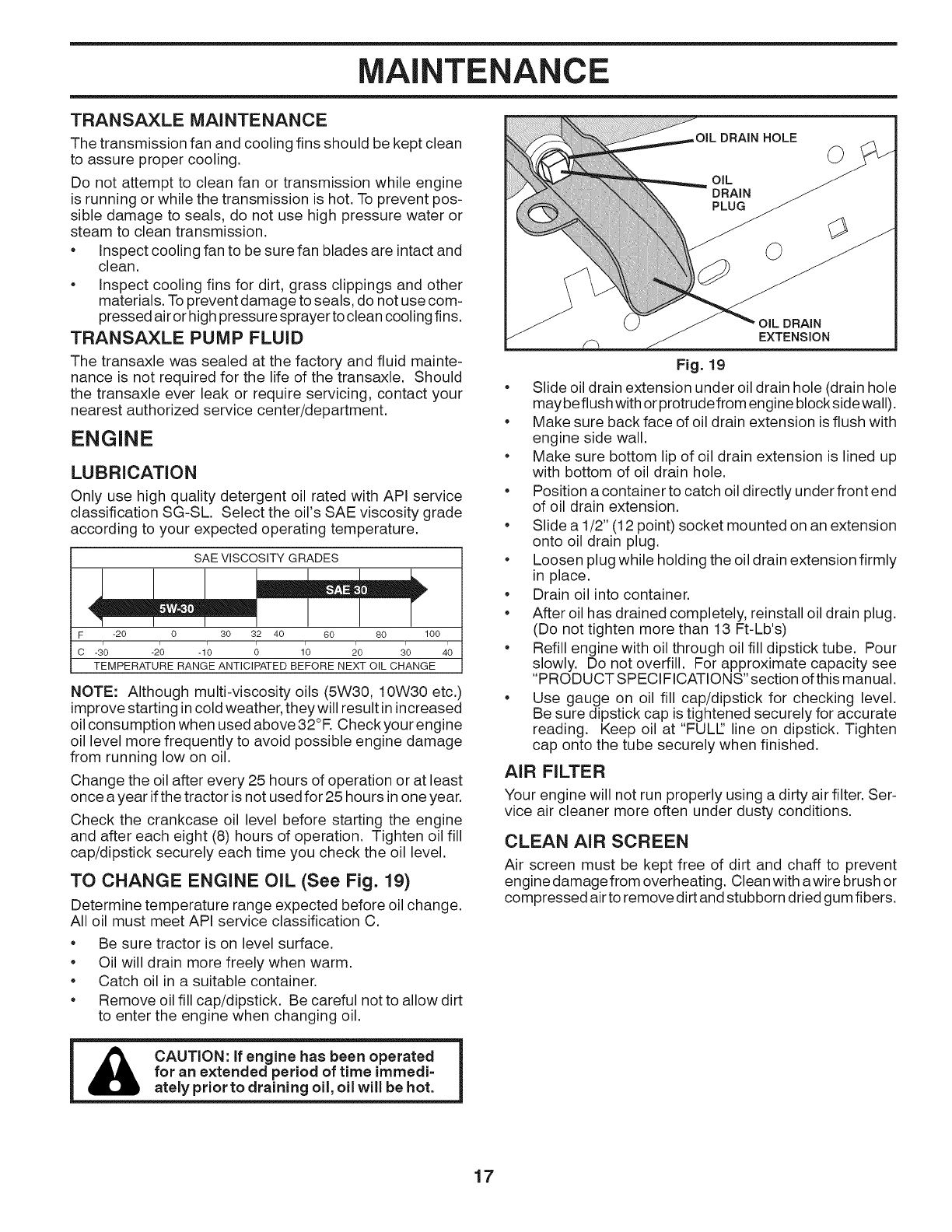
MAINTENANCE
TRANSAXLE MAINTENANCE
The transmission fan and cooling fins should be kept clean
to assure proper cooling.
Do not attempt to clean fan or transmission while engine
is running or while the transmission is hot. To prevent pos-
sible damage to seals, do not use high pressure water or
steam to clean transmission.
• Inspect cooling fan to be sure fan blades are intact and
clean.
• Inspect cooling fins for dirt, grass clippings and other
materials. To prevent damage toseals, do not use com-
pressed air or high pressure sprayer toclean cooling fins.
TRANSAXLE PUMP FLUID
The transaxle was sealed at the factory and fluid mainte-
nance is not required for the life of the transaxle. Should
the transaxle ever leak or require servicing, contact your
nearest authorized service center/department.
ENGINE
LUBRICATION
Only use high quality detergent oil rated with API service
classification SG-SL. Select the oil's SAE viscosity grade
according to your expected operating temperature.
SAE VISCOSITY GRADES
mm/
F -20 0 30 32 40 60 80 100
C -30 -2; -1; ; 1'0 20 30 4;
TEMPERATURE RANGE ANTICIPATED BEFORE NEXT OIL CHANGE
NOTE: Although multi-viscosity oils (5W30, 10W30 etc.)
improve starting in cold weather, they will result in increased
oil consumption when used above 32°R Check your engine
oil level more frequently to avoid possible engine damage
from running low on oil.
Change the oil after every 25 hours of operation or at least
once a year if the tractor isnot used for 25 hours in one year.
Check the crankcase oil level before starting the engine
and after each eight (8) hours of operation. Tighten oil fill
cap/dipstick securely each time you check the oil level.
TO CHANGE ENGINE OIL (See Fig. 19)
Determine temperature range expected before oil change.
All oil must meet API service classification C.
* Be sure tractor is on level surface.
* Oil will drain more freely when warm.
* Catch oil in a suitable container.
* Remove oil fill cap/dipstick. Be careful not to allow dirt
to enter the engine when changing oil.
A
for an extended period of time immedi-
ately prior to draining oil, oil will be hot.
©
OiL
DRAIN
PLUG
EXTENSION
Fig. 19
• Slide oil drain extension under oil drain hole (drain hole
maybe flush with or protrude from engine block side wall).
• Make sure back face of oil drain extension isflush with
engine side wall.
• Make sure bottom lip of oil drain extension is lined up
with bottom of oil drain hole.
• Position a container to catch oil directly under front end
of oil drain extension.
• Slide a 1/2" (12 point) socket mounted on an extension
onto oil drain plug.
• Loosen plug while holding the oil drain extension firmly
in place.
• Drain oil intocontainer.
• After oil has drained completely, reinstall oil drain plug.
(Do not tighten more than 13 Ft-Lb's)
• Refill engine with oil through oil fill dipstick tube. Pour
slowly. Do not overfill. For approximate capacity see
"PRODUCT SPECIFICATIONS" section ofthis manual.
• Use gauge on oil fill cap/dipstick for checking level.
Be sure dipstick cap istightened securely for accurate
reading. Keep oil at "FULl" line on dipstick. Tighten
cap onto the tube securely when finished.
AIR FILTER
Your engine will not run properly using a dirty air filter. Ser-
vice air cleaner more often under dusty conditions.
CLEAN AIR SCREEN
Air screen must be kept free of dirt and chaff to prevent
engine damage from overheating. Clean with awire brush or
compressed airto remove dirt and stubborn dried gum fibers.
17



